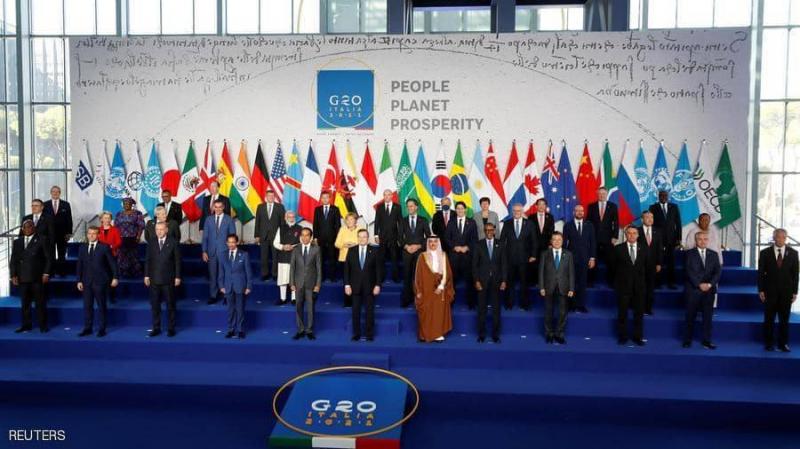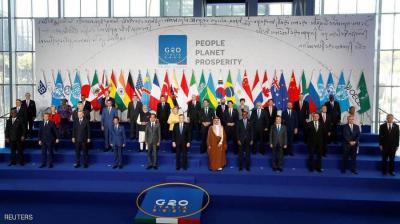A draft statement from the G20 group revealed that the leaders will acknowledge the existential threat posed by climate change and will take steps to limit global warming. The draft stated: "We recognize that the impacts of climate change at 1.5 degrees are much lower than its impacts at 2 degrees Celsius and that immediate action is necessary to keep the 1.5 degrees limit achievable."
This comes as the G20 summit is being held in person in Rome for the first time since the COVID-19 pandemic began. The two-day summit will focus on several issues, primarily climate change ahead of the COP26 climate summit, the COVID-19 pandemic recovery, global economic recovery, and combating global malnutrition. The international climate summit in Glasgow will take place immediately after the G20 summit.
United Nations Secretary-General Antonio Guterres expressed concern that the battle against climate change could be lost if the G20 does not intensify its efforts. The draft statement also includes a commitment to ensure the continuity of global energy supplies at a time when the world is experiencing fluctuations in oil and gas supplies due to the economic ramifications of the COVID-19 pandemic.
International relations expert Ayman Samir stated in remarks to "Sky News Arabia" that the issue of energy and the continuity of its supply is a crucial topic raised during the summit amid the energy crisis in Europe and accusations of Russia exploiting energy as a weapon. He forecasted that the summit will aim for energy supplies to be governed by trade standards rather than political motives, and that energy should not be used as leverage against countries for political gains. He noted that energy cannot be utilized as a weapon since the importance of energy types is variable; for instance, "hydrogen energy and renewable energy" have become more sought after than oil, hence energy can't be considered weaponizable.
### Key Issues
Samir explained that the G20 summit will address several significant topics, the first being how to achieve global economic recovery after the massive impact of the COVID-19 pandemic. He pointed out reassuring information from the World Bank indicating that the global economy is expected to achieve an overall growth rate of 5.8% by the end of 2021, marking the highest growth rate following recoveries from crises and disasters.
He emphasized that these indicators suggest the success of the G20 summit, noting that it precedes the Glasgow summit, thus climate change discussions and the necessity of adhering to the Paris Agreement of 2015 will dominate talks.
Samir emphasized that bilateral meetings are among the important issues discussed at the summit, particularly the meeting between U.S. President Joe Biden and French President Emmanuel Macron, signifying a resolution to the crisis over the sale of French submarines to Australia amid tensions involving the U.S., Australia, and the UK.
At the same time, Samir highlighted significant disagreements among some countries, notably concerning supply chains and "energy in Europe," including allegations against Russia regarding these issues while France defends Russia. Disagreements also persist over electricity shortages in China across multiple provinces.
Samir stressed that "issues of supply chains, rising oil prices, and their potential impact on recovery plans will lead to disputes among nations, but there must be common ground for these countries to emerge from the pandemic."
He remarked on a U.S. intelligence report absolving China of manufacturing the coronavirus, indicating a potential improvement in relations between Beijing and Washington.
He underscored the need for an ethical perspective during the summit toward others, as vaccination rates in wealthy nations exceed 70%, while poorer countries and Africa show low vaccination numbers. He emphasized that the summit must make decisions based on international responsibility, as the economy will not fully recover, nor will life return to normal, until all humanity, including African nations, is vaccinated.
He confirmed that this summit aims to reiterate what was discussed at the previous summit held in Riyadh. The G20 summit in November 2020 concluded with calls for collaborative efforts to combat the coronavirus and a vision for a post-pandemic world, emphasizing the importance of international efforts to overcome the crisis, particularly to ensure equal and affordable access to vaccines, continuing support for the global economy, and reopening economies and borders to facilitate global trade and supply movement.




